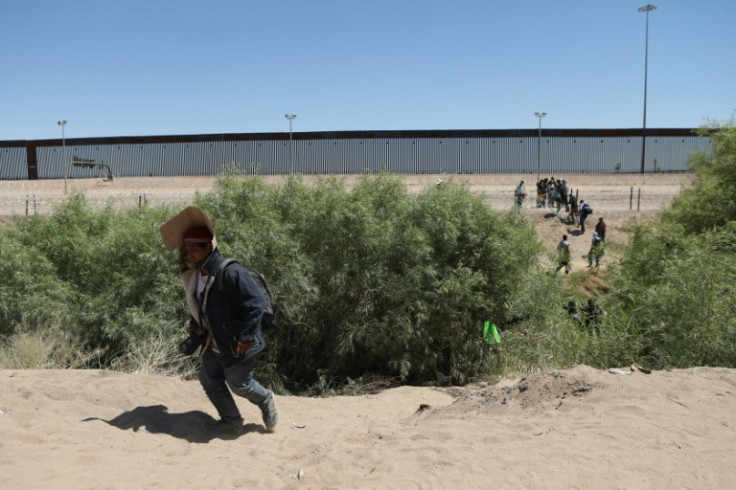
Migrant crossings at the U.S.-Mexico border have reached their lowest levels since President Joe Biden took office, according to U.S. Customs and Border Protection (CBP) data released this week. In fact, CBP reported 56,408 migrant encounters between ports of entry in July which signifies an 80% drop from last December in which Illegal crossings surged to their highest-ever level.
The number of migrants crossing the border has declined steadily over the past five months. The decline was observed across all demographics, including single adults, families, and unaccompanied minors, during a period when migration typically increases.
The number of migrant encounters at ports of entry, via CBP One appointments, also declined in July, year over year: to roughly 38,000 from more than 44,000 in the same month a year ago.
"The numbers have indeed decreased and have decreased significantly," Homeland Security Secretary Alejandro Mayorkas told USA TODAY. "The reason for it is not singular. It is a number of different measures that we and others have taken."
Mayorkas went on to mention a combination of factors, including new lawful pathways for migrants to enter the U.S., stricter consequences for illegal crossings and tightened asylum restrictions.
The Biden administration's also enhanced border enforcement cooperation with Mexico, Guatemala, Panama and Colombia, resulting in those countries enforcing their own border and strengthening their humanitarian relief programs, slowing the flow of migrants through the region. Tens of thousands of people still move towards the U.S. – but it was becoming harder, and taking longer, to reach the border.
The shift in migrant flows has been most evident in places like Texas, where governor Abbott's "migrant bus" program, which transported individuals who crossed the border illegally to sanctuary cities, seems in danger. With fewer migrants crossing unlawfully, the need for these buses has diminished.
The Biden administration's efforts to reduce unlawful crossings included an executive order in June that severely restricted asylum claims at the border, as well as increased deportations. While these measures have led to a temporary decline in crossings, the long-term impact remains uncertain as migrants and smugglers adapt to changing policies.
© 2025 Latin Times. All rights reserved. Do not reproduce without permission.





